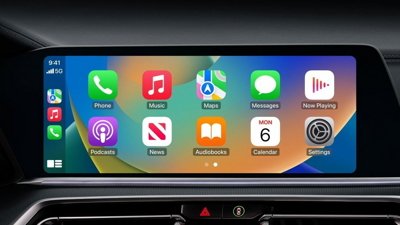Bloomberg reports that the bill, which would prevent U.S. limitations on air shipments of lithium batteries from exceeding international standards, passed in the House on April 1, but will need to be reconciled in a House-Senate conference committee.
The new legislation conflicts with a proposed rule by the Pipeline and Hazardous Materials Safety Administration that would impose additional limitations on shipments of lithium batteries over concerns that they may overheat and ignite during transport. If the rule came into effect, manufacturers, retailers and airlines would all be subject to new packaging, training and handling requirements.
According to an analysis commissioned by the Rechargeable Battery Association, the limitations would cost $1.13 billion the first year in packaging, transportation, logistical and training costs.
Apple has widely implemented lithium batteries in its mobile devices and laptop computers. The company has worked to develop standards for the manufacture of lithium ion batteries in the past.
In 2006, high-profile battery recalls from affecting notebook manufacturers, including Apple, sparked industry concern over the safety of lithium-ion batteries. The batteries, which were manufactured by Sony, were recalled after reports emerged that the batteries could cause overheating and in some cases fire.
More recently, the tragic earthquake and tsunami that occurred in Japan in March of this year has reportedly caused a shortage of lithium-ion batteries used in Apple's iPod line. Kureha Corp., which has a 70 percent global share in a polymer used in the batteries, was forced to close a factory in Iwaki, Japan after the disaster.
A patent application recently discovered by AppleInsider revealed that Apple is investigating techniques to improve battery performance by increasing the energy density of rechargeable lithium batteries.
 Josh Ong
Josh Ong







 Marko Zivkovic
Marko Zivkovic
 William Gallagher and Mike Wuerthele
William Gallagher and Mike Wuerthele
 Andrew Orr
Andrew Orr

 Amber Neely
Amber Neely
 Mike Wuerthele
Mike Wuerthele
 William Gallagher
William Gallagher









33 Comments
Thanks for not taking us back to the dark ages.
Come on now, other than speculation when was the last time you read about a plane going down because a shipment of lithium batters exploded?
A lot of companies and people have been riding Apple's nuts lately, it's getting a bit redundant.
Thank you Congress for protecting my investment. Now there is one less reason for AAPL to drop. GAME ON!
The issue isn't simply one of shipping large quantities of batteries. It also has to do with batteries inside our laptops, iDevices and phones overheating and igniting during passenger flights. A fire in a small and cramped environment of an airplane can spread quickly and lead to the loss of many lives.
I would imagine ambient temperature would play some part in this, as would the device's ability to dissipate heat. Airplanes are cold (maybe it's just me, but I usually ask for a blanket even on a one-hour hop) so that helps.
It's good to know though that the tech and airline companies only value the lives of all their passengers at $1.13 billion.
A million different plane parts and materials can ignite and self combust, before worrying about batteries in the cargo. And another million different goods can do so in the cargo apart from those lithium packs. Give me a break with the risk for passengers lives, in some cheesy pseudo scientific crime show maybe....
At least if they wanted to ban lithium for environmental reasons I'd be on board (pun intended) despite the set back for electronics. I mean let,s face it those lithium packs are TERRIBLE ecologically wise, from the making to the disposal. If Apple would find a substitute source of power they'd have a huge claim as most eco friendly computers